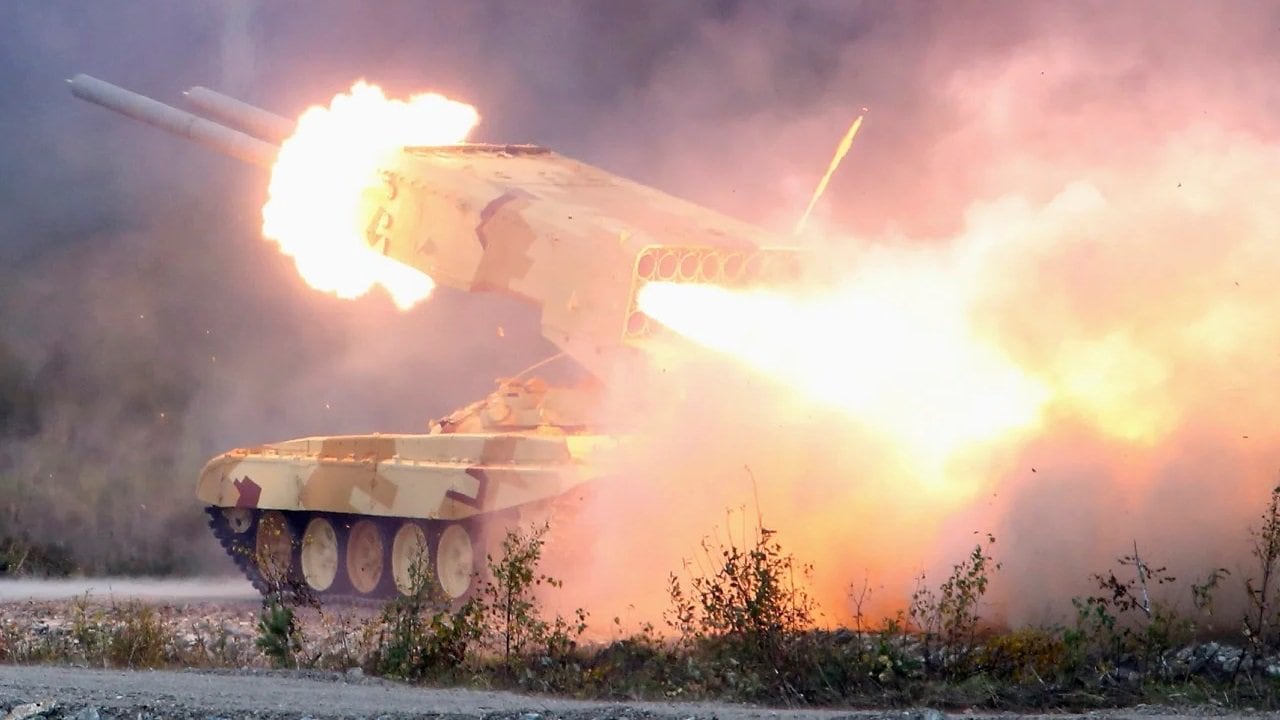Since the start of the war in Ukraine in late February, the policy conversation in Washington and European capitals has revolved around how best the West can put an end to Vladimir Putin’s aggression. The answers, so far, have been economic and military aid to Kyiv, economic sanctions against Russia, and a recapitalization of NATO. Those solutions, however, are merely tactical, because their focus is on Russia’s current war and not its larger strategic ambitions.
To wage and sustain his barbaric invasion of Ukraine, the Russian president has had to concentrate his government’s foreign policy and military might almost entirely on the Ukrainian front. As a result, Putin has moved thousands of Russian troops and assets stationed worldwide – out of traditional areas of influence in places such as the Caucasus, as well as newer battlegrounds in Africa. Even in Central Asia, Russia’s geopolitical backyard, regional regimes are seeking a way out of Moscow’s downward spiral.
This trend, combined with massive losses in Ukraine, has greatly diminished Putin’s ability to project hard power or promote soft power. The United States and its partners, however, have yet to take advantage of these limitations to roll back Russian influence globally.
A logical place to start is Syria, which served in many ways as a prelude to the war in Ukraine, and where Russia has become a key enabler of the regime of Syrian dictator Bashar al-Assad. Moscow’s military assistance to Damascus has reaped it tremendous dividends – including establishing a long-term naval presence and carving out a broad zone of influence. Increasingly, however, Russia no longer has the military or economic clout to assist Assad, or to help Damascus keep de-facto control of urban centers like Tal Rifaat and Manbij.
A natural ally in this regard is Turkey. Turkey has seized any opportunity to undermine Russia, opposing the Kremlin’s policies in Azerbaijan, Libya, and multiple times now in Ukraine, most recently with a game-changing grain deal. In the process, Ankara has proven that it is a willing partner of the West, particularly when it stands to benefit. And Turkey has a clear desire to expand its sphere of influence in Syria, an effort Turkish president Recep Tayyip Erdogan has portrayed as a counterterrorism priority. Giving Ankara a green light to do so would provide Washington a low-cost way of pushing back Russian influence in the Levant.
Meanwhile, in Africa, working with its European partners and Turkey – the main patron of the U.N-backed Tripoli government- the U.S can move to facilitate gas transfers from Libya to Europe. Such a maneuver would undermine Russia’s efforts to occupy and block strategic oil fields in the country, which have already started to hurt Europe.
In Central Asia, all the signs point to Russia losing its grip over the region from both an economic and moral standpoint. Sanctions on Moscow are making it a less attractive partner, while Russia’s military incompetence and pan-Slavic ambitions have led local governments to question their longstanding ties to the Kremlin. China is rushing into the resulting gap, but the door is open for the U.S to do so as well, especially as countries such as Kazakhstan and Uzbekistan increasingly look to the West for socio-economic advice, leadership, and democratic reform.
Finally, in the Balkans, renewed tensions have highlighted a forgotten dimension of Russia’s presence in Europe. Putin’s recent comparison of the legitimacy of Crimea to Kosovar independence has rubbed many in Serbia the wrong way, and given the U.S and the EU an opportunity to make clear to Belgrade that a time to break with Moscow is at hand. At the same time, Russia’s efforts to empower Milorad Dodik, the leader of the Bosnian Serb presidency, to secede from the country has increasingly undermined national integrity. But Dodik’s plans have been pared back because of Russia’s Ukraine campaign, giving the West the opportunity to prepare for a smooth political transition.
As the summer drags on, Russia is facing, at best, a military stalemate in Ukraine. But while this one battlefield looms large, Washington must not allow itself to lose sight of the bigger picture, as it is presented with an opportunity to hit Russia where it hurts. If, that is, it is prepared to do so.
Hazik Azam is a researcher at the American Foreign Policy Council in Washington, DC.

